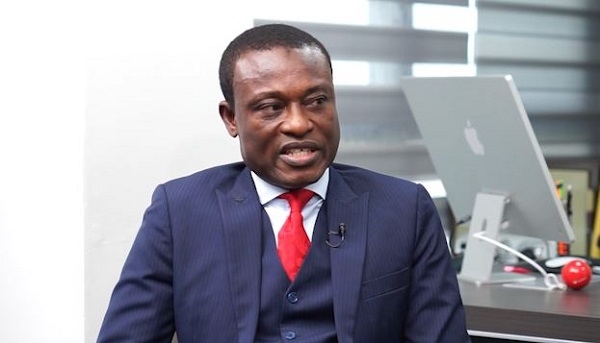* Iran's Atomic Energy Organization confirmed early Sunday that Iran's nuclear sites in Fordow, Natanz and Isfahan were attacked again, adding that the country would not halt the development of its nuclear industry despite the attacks.
* The Russian Foreign Ministry condemned the U.S. bombing of Iranian nuclear sites as a reckless move that violates the Islamic Republic's sovereignty, international law and the UN Charter.
* The attacks marked a major escalation in the Middle East, said experts, warning that it may provoke retaliation from Tehran against U.S. troops and military installations across the region.
WASHINGTON/TEHRAN, June 22 (Xinhua) -- U.S. President Donald Trump said Saturday that the United States has completed attacks on three nuclear sites in Iran, namely Fordow, Natanz and Esfahan.
Trump's decision to intervene directly in support of Israel's attempt to dismantle Iran's nuclear program marks a major escalation in the Middle East and sparks fears of wider conflict in the region.
STRIKES ON NUCLEAR FACILITIES
Addressing the nation Saturday evening, Trump said that Iran's key nuclear facilities had been "completely and totally obliterated," and that future attacks would be "far greater and a lot easier."
"If peace does not come quickly, we will go after those other targets with precision, speed and skill. Most of them can be taken out in a matter of minutes," he said.
Israeli Prime Minister Benjamin Netanyahu on Sunday called it a "bold decision to target Iran's nuclear facilities."
Iran's Atomic Energy Organization confirmed early Sunday that Iran's nuclear sites in Fordow, Natanz and Isfahan were attacked again, adding that the country would not halt the development of its nuclear industry despite the attacks.
"Iran will never allow the development of its nuclear industry to be hindered," the agency said in a statement, adding that "necessary measures, including legal procedures, are on the agenda to defend the country's rights."
Iran said the attacks didn't harm its nuclear efforts because the sites had been evacuated "a while ago" and the materials had previously been removed, said Hassan Abedini, deputy political director of Iran's state broadcaster.
The Iranian state media reported that there were "no signs of contamination" at the nuclear sites at Esfahan, Fordow and Natanz after U.S. airstrikes, quoting a statement from the country's National Nuclear Safety System Center.
"There is no danger to the residents living around the aforementioned sites," the statement said.
The Saudi Nuclear and Radiological Regulatory Commission has confirmed that no radioactive traces have been detected in the environment of the country or other Arab Gulf states following the U.S. military strikes.
In a post on its official X account, the Saudi nuclear body said that continuous monitoring has shown no signs of radiological impact on the region's environment.
On Sunday, Iran launched a new wave of missile attacks on Israel, injuring 26 people and causing heavy damage to residential buildings, roads and vehicles, according to Israel's national emergency service Magen David Adom.
Israel closed its airspace in an apparent precautionary measure following the U.S. strikes, the Israel Airports Authority announced earlier.
INT'L REACTIONS
The U.S. military attack on Iran's nuclear facilities has drawn widespread criticism, with global leaders warning of a dangerous escalation that could spiral into a broader conflict.
In a statement on Saturday night, UN Secretary-General Antonio Guterres said he is "gravely alarmed by the use of force by the United States against Iran," calling the attack "a dangerous escalation in a region already on the edge and a direct threat to international peace and security."
"There is a growing risk that this conflict could rapidly get out of control -- with catastrophic consequences for civilians, the region, and the world," he said. "There is no military solution. The only path forward is diplomacy. The only hope is peace."
The Russian Foreign Ministry condemned the U.S. bombing of Iranian nuclear sites as a reckless move that violates the Islamic Republic's sovereignty, international law and the UN Charter, reported Russia's RIA Novosti news agency.
"The UN Security Council should naturally take action. Confrontational behavior of the U.S. and Israel has to be rejected collectively," the ministry was quoted as saying. "We call for an end of aggression and urge efforts that will create conditions for a return to a political and diplomatic path."
The Iraqi government strongly condemned the targeting of nuclear facilities, calling the military escalation a grave threat to peace and security in the Middle East and posing serious risks to regional stability.
In a statement, Iraqi government spokesman Basim al-Awadi said that "the continuation of such attacks risks dangerous escalation with consequences that extend beyond the borders of any single state, threatening the security of the entire region and the world."
Cuban President Miguel Diaz-Canel also condemned the U.S. attack, calling it a dangerous escalation of the conflict in the Middle East, which "seriously violates the UN Charter and international law and plunges humanity into a crisis with irreversible consequences."
"Attacking nuclear power plants is prohibited by international law," Chilean President Gabriel Boric wrote on X, noting that "Having power does not authorize its use by violating the rules that we, as humanity, have given ourselves. Even if you are the United States. We demand and need peace."
In a statement posted on X, the Mexican foreign ministry called for diplomatic dialogue to promote peace between the parties involved in the Middle East conflict and reiterated its call to de-escalate tensions in the region, adding that "the restoration of peaceful coexistence among the states of the region is the highest priority."
RISKS FOR WIDER CONFLICT
The attacks marked a major escalation in the Middle East, said experts, warning that it may provoke retaliation from Tehran against U.S. troops and military installations across the region.
Far from bringing peace to the Middle East since taking office, Trump is now presiding over a region on the precipice of even greater warfare -- a fight in which the United States is an active participant, the BBC said in an opinion piece.
"Despite the president's bravado, a continued American military engagement in Iran may be a worst-case scenario for the United States, the region and the world," it warned.
Iranian Foreign Minister Seyed Abbas Araghchi said Sunday that the U.S. strikes on Iranian nuclear facilities were "outrageous" and "will have everlasting consequences."
Tehran "reserves all options" to retaliate, said the minister.
Hizam al-Assad, a political bureau member of Yemen's Houthi group, said in a social media post early Sunday that it would hold Trump responsible for the attacks on Iranian nuclear facilities.
Before the U.S. attacks, the Houthi group said in a statement that it would target U.S. ships if Washington attacks Iran.
"If America is involved in the attack and aggression against Iran … the armed forces (Houthi forces) will target its ships and battleships in the Red Sea," Houthi military spokesperson Yahya Sarea said in the statement.
Liu Zhongmin, a professor from the Middle East Studies Institute of Shanghai International Studies University, noted that Iran's potential retaliation hinges on the actual damage sustained by its nuclear facilities.
If the impact is limited, Iran may opt for restrained countermeasures, such as targeting minor U.S. bases in Syria or Iraq, Liu said in an interview with Xinhua.
However, should critical nuclear infrastructure be severely compromised, Tehran could escalate strikes against U.S. military installations in the Gulf, he said.
Regional allies like Hezbollah, the Houthis, and Iraqi militias might also coordinate synchronized attacks, he added.
(Video reporters: Xu Xingtang, Xu Jing, Hu Yousong; video editors: Wang Han, Wei Yin, Zhang Yichi)■











